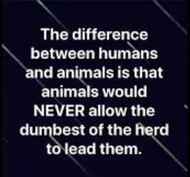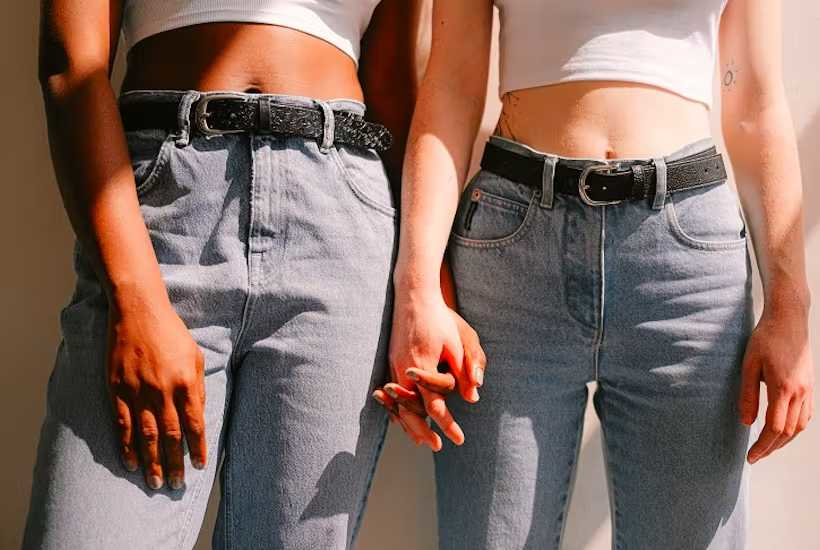
Another disturbing judgment from a tribunal in Tasmania shows that our judicial system in Australia is corrupted with a virus we need to urgently address. First, we need to stop pretending our governments, under any party, are anything but hostile to the rights of women and to the safety of women and children.
Last year, the Tasmanian Anti-Discrimination Commissioner, Sarah Bolt, ruled against Jessica Hoyle in an application to hold a female-only event for lesbian women in a Hobart gay bar. Hoyle sought an exemption from gender identity protections in order to discriminate against male people. The ruling from Equal Opportunity Tasmanian from May 2021 shocked me to my core.
In declining Hoyle’s request to hold a single-sex event, it could be inferred that to allow such a thing would be to permit lesbians to engage in possibly illegal and potentially deviant behaviour. It needs to be noted that homosexuality was only legalised in Tasmania in 1997.
Sarah Bolt indicated that when the lesbians acted to ‘confirm a person’s biological sex’, they would be involving people in intrusive questioning and undermining their ‘right to privacy’. The implication is that lesbians are so poor at determining a person’s biological sex on sight, they may seek to inspect an individual’s genitals.
Last week, Kate Cuthbertson from Tasmanian Civil and Administrative Tribunal (TASCAT) upheld the ruling of Sarah Bolt by saying that there is ‘no evidence’ that allowing lesbians to discriminate on the basis of sex is ‘desirable’, not only that, but the very application to ask permission for a single-sex space for women does a ‘disservice to transgender and transexual communities’.
Jessica Hoyle decided to challenge the ruling with TASCAT because it is the only affordable way to do so in Tasmania. It bears remembering that Tasmania is a special case in this area for several reasons.
Both judges in the tribunals pointed out that sex is not a protected attribute in Tasmania, but they do so as if this is a very progressive thing. Cuthbertson reminds us in her ruling that sex has never been a protected attribute in Tasmania.
If the judges had used this fact as a failure of the law to protect women and lesbians, I may have a small amount of respect for them. Instead, the document reads like we are stepping back in history. It is not that Tasmania is uber-progressive, Tasmania is the island where women’s rights never really arrived.
Historically, apart from the systematic murder of Indigenous people, Tasmania is famous for the ‘female factory’ system. ‘Female factories’ were facilities for women who had been trafficked through the convict system. 12,500 women went through the female factories in the early 19th century in Tasmania, that is an extraordinary amount of women, given the female population in Tasmania when transportation ceased in 1853 was only around 25,000.
Women in the factory were placed into a three class system in accordance with their behaviour on a ‘respectability scale’. The female factories were not to punish women, but to help them meet classed and gendered expectations. Women were in fact not brought to Australia for punishment but to ‘improve morals in the colony as well as bump up the population’.
If women were respectable and competent after the training, they were deemed acceptable to be placed as domestic labour in upper class families. Girls and women who became pregnant were returned to the factory, where they would wean their child so it could be given to a suitable family. Sex and the vulnerability of women to sexual exploitation was ignored for higher social aims and the maintenance of valuable gender stereotypes.
Cuthbertson’s ruling last week included performance outrage that Jessica Hoyle would even suggest that ‘potential motivation of transgender and transsexual women who seek to access women only-spaces or events’ might be to have sex with women. The ruling states that ‘not all transgender or transexual women are same-sex attracted. Many are heterosexual, (that is they are exclusively attracted to men)’. ‘Transexuals’ is an old term used overwhelmingly for same-sex attracted trans-identified male people, they don’t now, nor have they ever sought entry to lesbian events because they are homosexual men. The conflation and confusion here are a feature rather than a bug of gender identity movement.
Self ID combined with gender identity protection in law, erases both homosexuality and sex and replaces them with gender parlour games. Instead of learning to set a table with the appropriate cutlery, we learn how to use the upper-class double-speak of gender supremacy that can never meet the needs of women, because the needs of women can never be described and certainly can’t be centred.
Australian women need to restructure our arguments to remove any assumption that governments are subjecting women to sexual violence accidentally. State mechanisms need to be treated as hostile to women and women’s rights, and the burden of proof must be placed on the courts to provide women with the evidence that the change of a sex marker can abate male pattern violence in individuals.
The application for an exemption from Hoyle, used evidence from UK prisons where there are clear indications that ‘transwomen’ are showing higher rates of sexual offence than the general male prison population. The evidence suggests that some males will adopt trans identity to access female facilities. Cuthbertson meets the evidence (that originally emerged in court documents that are not cited in the case of FDJ,R v Secretary of State for Justice) with the claim that the evidence is not ‘peer-reviewed or subject to any formal statistical analysis’.
Australian lesbian women, who formerly held protective attributes, are being asked, by legal mechanisms, for peer-reviewed proof of the criminality of males in relation to females to justify their requirement of a single-sex space. The sexual behaviour of males toward females including aggressive, coercive, and violent behaviour is established science. According to the Australian Institute of Health and Welfare, ‘nearly all sexual assault offenders recorded by police were male’. If we are being told there is a cohort of males who are exempt from these statistics, we need to know how to define this cohort.
According to government practice, ‘trans’ is the legal change of sex marker on official documents or even just the expression of identity. A ‘transwoman’ is by definition a natal male with a protected gender identity characteristic. ‘Trans’ is achieved legally with a declaration, and it is sometimes accompanied by the wearing of stereotypical female clothing. Trans is no more able to alter male pattern behaviour than a priestly vow and a cassock.
We must seek to force governments and courts to be factual to the definition of ‘trans’ that is being imposed on women’s spaces and protective infrastructure. The debate about whether ‘transwomen’ are a danger to women is a red herring. We know that males are a danger to females, we need evidence from governments, from ACON, from Equal Opportunity Tasmania, from the Queensland Attorney General, Shannon Fentiman; how it is that a declaration can abate male pattern violence? Where is the science that is being used to erase the sex category that women need for our own protection in public spaces and cultural and religious events?
Women are gathering evidence of the human rights violations that are mounting under the guise of gender identity, but I am past my tolerance of seeing women present this evidence of raped and humiliated female bodies, of male pattern violence, to an elite that shame them for breaking the respectability rules of gender performance.
Cuthbertson’s ruling accuses Jessica and the applicants of finding tans identified males ‘irksome’ and that this is the motivation for them wanting to exclude males from a dating event. Lesbians don’t date other women because they find men ‘irksome’. Women don’t seek to have single-sex spaces because men are ‘irksome’. Males commit ‘nearly all’ sexual assaults. Single-sex spaces are essential for the liberty and safety of women in societies where women seek broad involvement in public life.
Ms. Hoyle never made the argument that trans-identified males are ‘irksome’ to lesbians, and it could be seen by some as homophobic to suggest she did. It is not that trans-identified males are irksome, it is that ‘transwomen’ are men and lesbians are homosexual women.
We need to find a way to approach the Australian government and courts with factual terms of this human rights debate. The definition of a trans person is not the myriad of gender identities and expressions written about by Cuthbertson in this ruling, a ‘transwoman’ is any man that fills in a form to have his sex marker changed on his birth certificate. Alternatively, a ‘transwoman’ is a natal male who makes a declaration that he is a woman.
These are the definitions we are given to include males in women’s spaces, these are the definitions we must insist on when we ask tribunals to defend the law. We don’t need endless lectures about gender souls, identities, and experiences. I have my own religion and I can’t even follow that properly. Women have to scorn the shame that is placed on us to submit to laws we know will cost us our dignity, our safety, and our rights.
The only right lesbians retain in Tasmania, as pointed out in the Tasmanian rulings, is the ordinary right that every person has to complain to the police if an attack or harassment occurs. When the courts are spouting this ideology, and the police are so frequently paid-up members of ‘diversity’ schemes, let’s be honest about the prospects of a woman with no protected attribute, making this kind of complaint against a man with a legally a protected gender identity attribute of ‘woman’. If a prosecution did occur the crime would be recorded as female-on-female violence and the person would go to a Tasmanian women’s prisons.
The Queensland Parliament have snuck in Self ID laws through Parliament to join Tasmania in the removal of women’s right to single-sex spaces. It was in living memory that public bars were single-sex in Queensland, and women were not permitted to enter them. In 1965, women chained themselves to a public bar in protest. The Labor member for Sandgate, Harold Dean, argued that women shouldn’t be allowed in public bars in Queensland because, ‘The prestige of womanhood is too high and too valuable and too precious to be destroyed by a vulgarism.’
The prestige of womanhood, the gender of faux respectability, of the absence of vulgarity, will again be protected in Queensland, but as a characteristic men can purchase from the Registry of Births, Deaths, and Marriages. Unfortunately, the prestige of womanhood as an identity will only be protected in men in Queensland. Boring old biological women will need to be trained in gender factories to believe that a vow and cassock can abate male pattern behaviour.
Edie Wyatt has a BA Hons from the Institute of Cultural Policy Studies and writes on culture, politics and feminism. She blogs at ediewyatt.com and substack.













